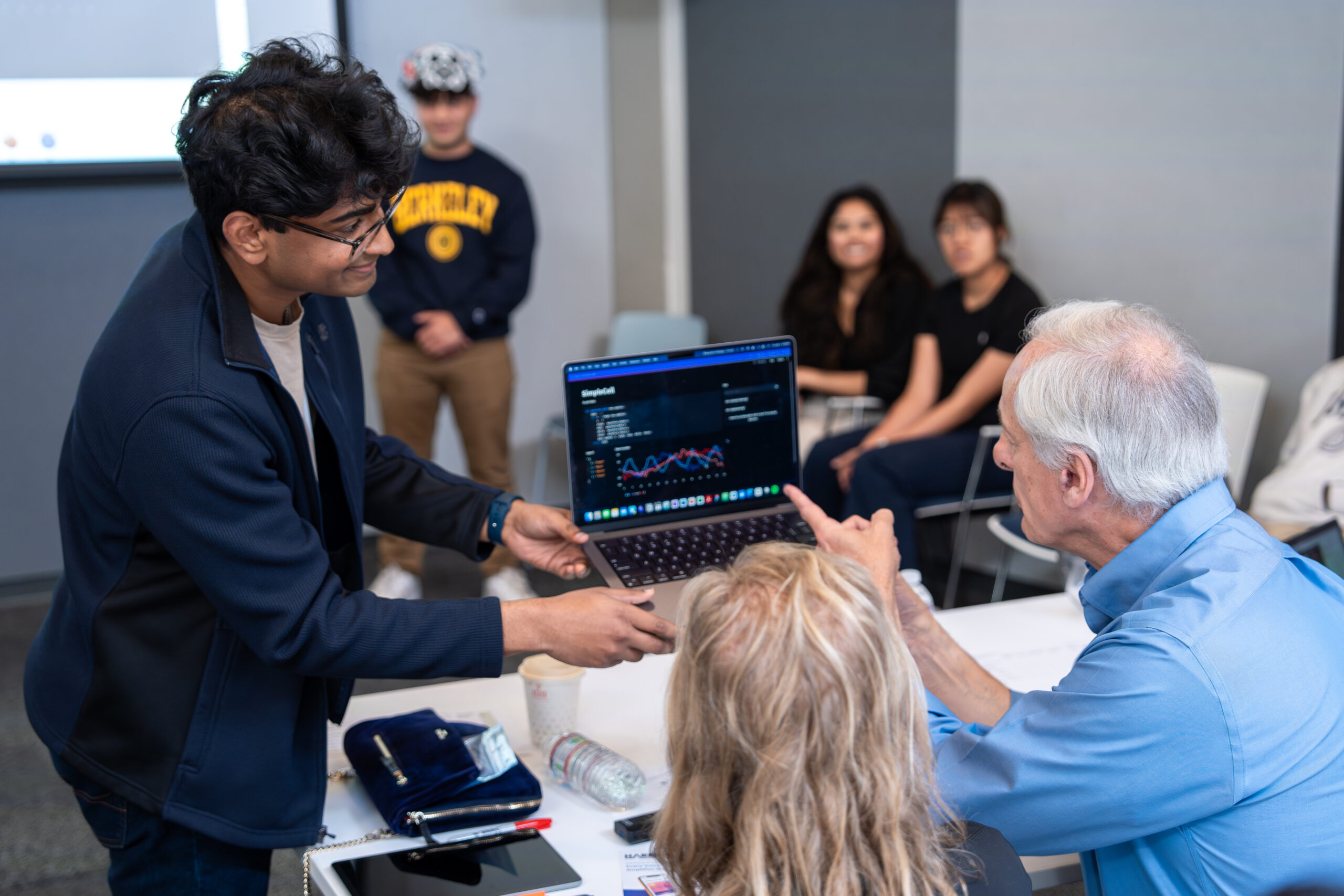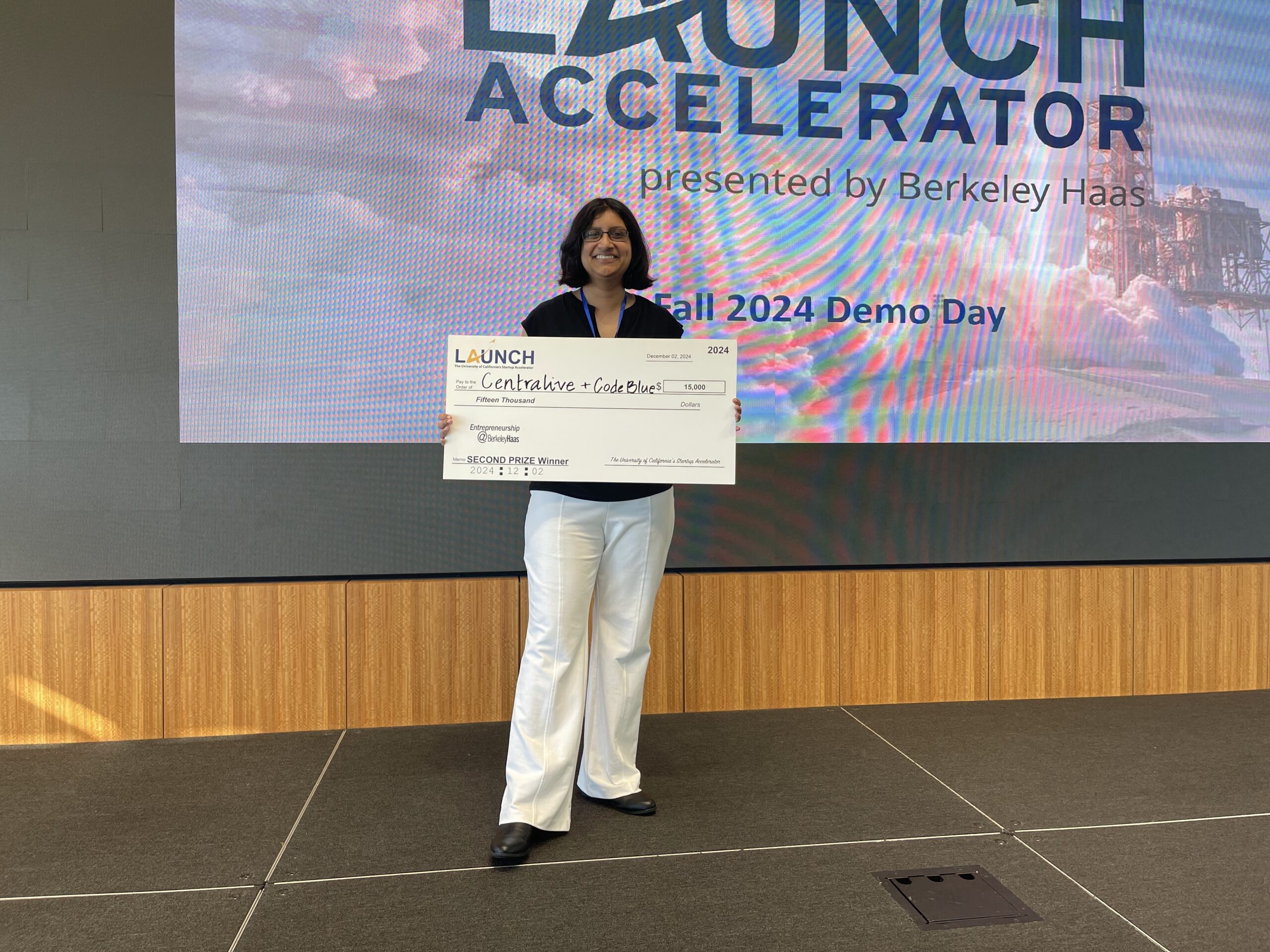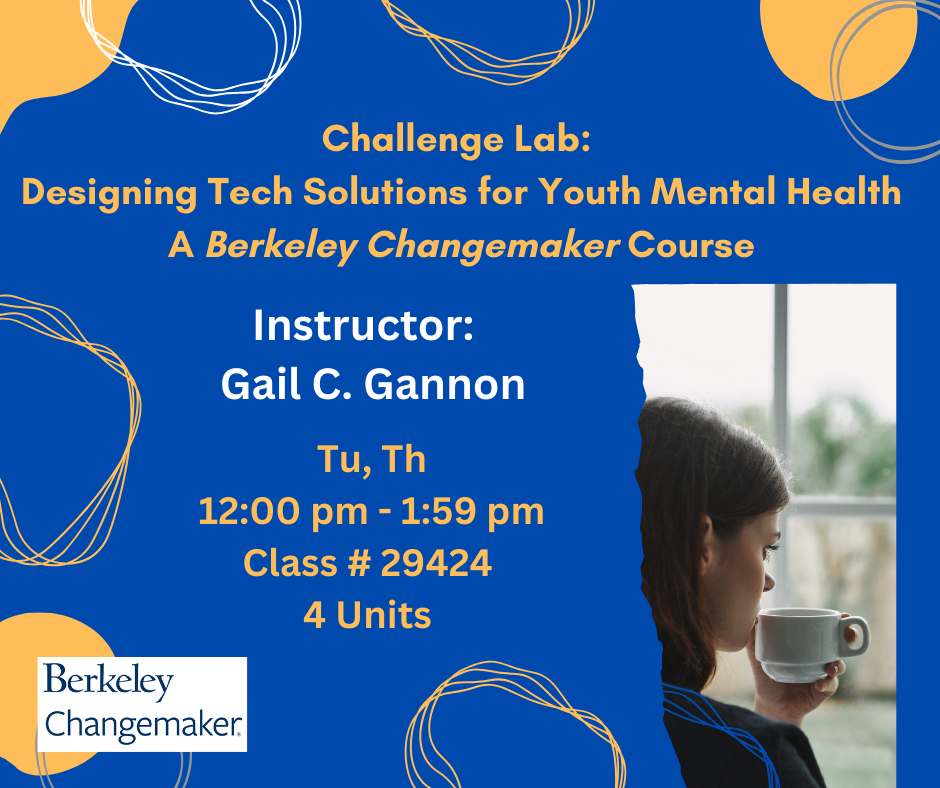After Learning the Art of Transforming Brain Health With Neurotech, SimpleCell Wins Second Place in Collider Cup
By: Niki Borghei
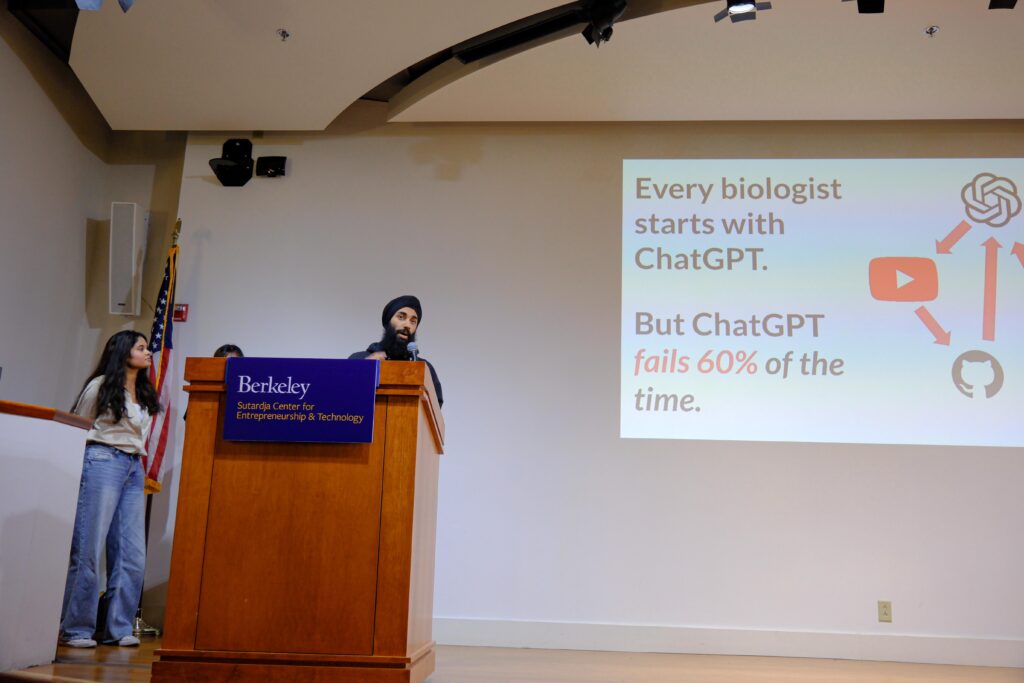
The Sutardja Center for Entrepreneurship & Technology’s “all-star showcase” spotlights the brightest entrepreneurial student teams each semester.
The Collider Cup is more than just a competition; it’s a stage where the next generation of innovators shine. Picture this: teams of passionate students, fueled by a drive to make social change, pitching their groundbreaking ideas to panels of professors, investors, and industry experts. From disruptive tech solutions to revolutionary business models, each presentation is a testament to the creativity and drive among students at UC Berkeley.
Students from the Transforming Brain Health With Neurotech course, under the project name SimpleCell, won second place in the Collider Cup. This course aims to teach students how to solve diverse challenges in the neural health realm, including closing inequity gaps.
“The biggest way this course helped me is by giving me confidence to do original work,” said Sehej Bindra, a recently graduated biochemistry major who will be working on brain-computer interfaces at a neurotech startup. “An intrinsic characteristic of startups is that you are building something different. And to build something that no one has, you often need to find holes in the world that other people refuse to see.”
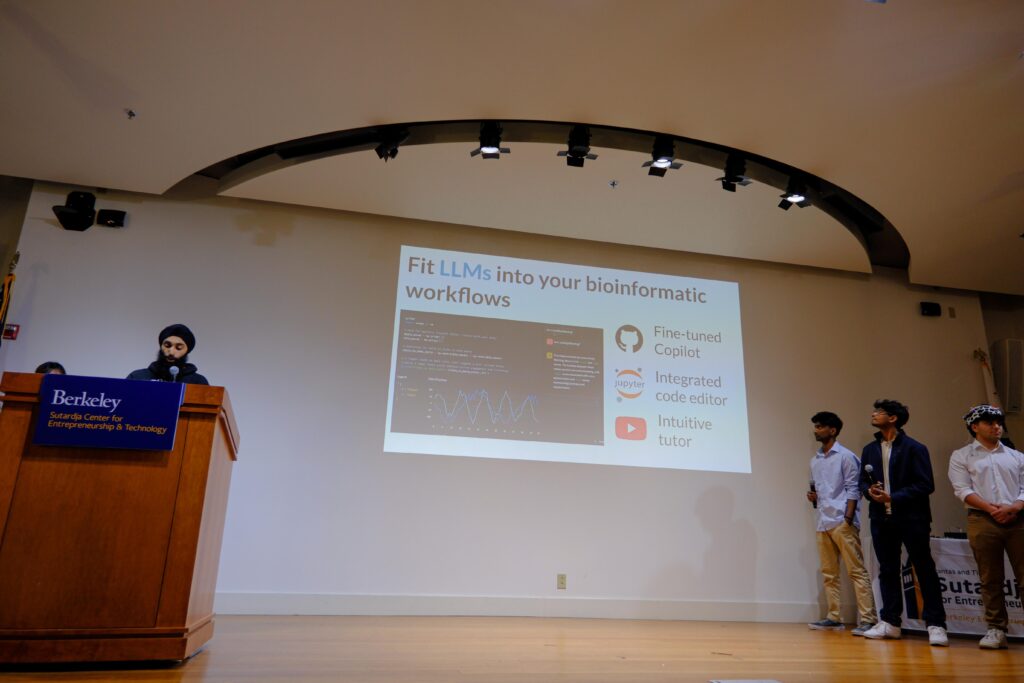
SimpleCell democratizes science by simplifying bioinformatics, using natural language to turn what could be a 10 hour process of analyzing data into an easy 10 minute process.
After investigating labs on campus, these students determined that the average biologist can waste up to ten hours analyzing data on a single experiment. The reason for this is because in addition to being a full-time biologist, there is still a need to perform the workload of an IT professional, programmer, and statistician. SimpleCell takes care of much of the workload, not only to improve accuracy, but to allow biotech researchers to save valuable time and money that could otherwise be spent on their science.
Arvind, a newly graduated EECS major, led technical product development and built the prototype of their analysis platform. For him, the course was instrumental in supporting their journey ideation to prototype: finding a problem, customer interviews, prototyping, testing, iterating and continuing the process.
“I remember going with my teammates and knocking on over 15 labs across Berkeley and UCSF to interview researchers and have them test our application,” he reminisced.
Amidst Arvind’s reflections, Tejas, a first-year neuroscience major, echoes the important lessons his experience with SimpleCell has taught him about the entrepreneurial journey.
“SimpleCell has allowed me to gain insight into entrepreneurship through students like myself. I’ve learned so much and received invaluable advice from my upperclassmen peers, which is why I believe having a network of students with more experience than you can go a long way. Courses such as this challenge lab and an intro to biotech course I took this past semester provide the opportunity to gain insight into entrepreneurship through industry professionals which can assist with networking as well as the various pipelines within entrepreneurship itself.”
Behind every victory lies a story of perseverance and hard work, and SimpleCell’s success is no exception.
“We won the Neurotech Challenge Lab on Thursday and then had less than 24 hours to prepare for the Collider Cup pitch the very next day,” Sehej shared.
After receiving significant feedback on their initial pitch, they decided to rethink most of their presentation.
“I think there were a lot of things I learned in those 24 hours,” Sehej continued. “But perhaps the broad lesson that encapsulates that experience is that pitching a company in three minutes is impossible. There is no way you can capture the nuances and cover enough information that can convince an outsider that your business is legit. So instead, your approach has to be different: instead of selling the whole company, we decided to shift our Collider Cup presentation to almost exclusively talking about the product.”
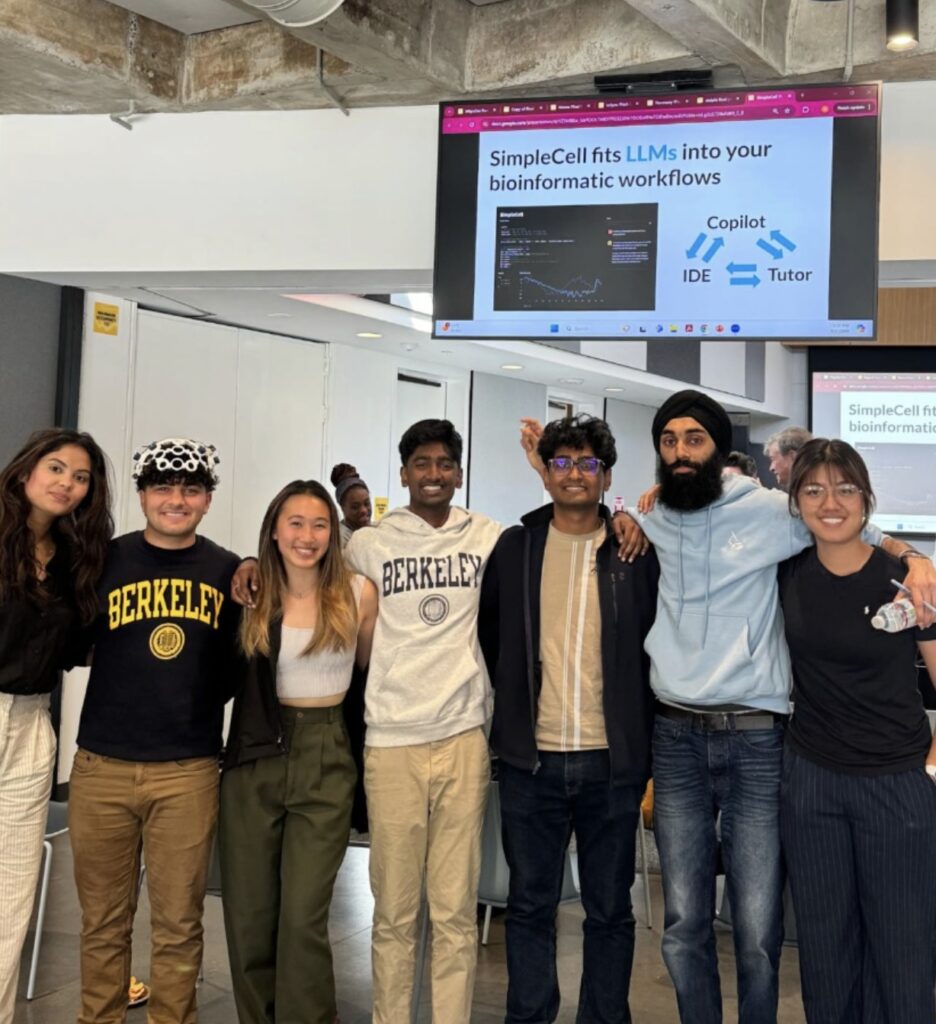
They opened their presentation with the lessons they learned from talking to researchers and spent much of the presentation discussing what they learned about their customers. There was no mention of pricing, competition, and practically no business model and go-to-market strategy in this short pitch.
“The rationale behind focusing on just the users and product was to convince the judges that SimpleCell has a legitimate understanding of the users and that we have already started building something to solve their problems. Instead of spreading ourselves thin talking about different aspects of our business, we honed in on specific details and crafted a cohesive story that resonated with the judges.”
To view the full pitch, please click here and start at 1:19.


